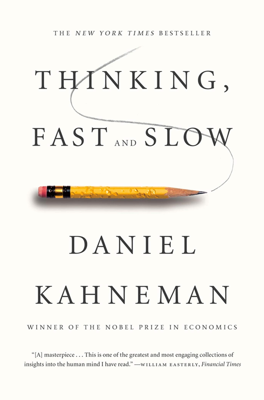Answering an Easier Question
Substituting Complex Questions with Simpler Ones
System 1, when faced with difficult questions, often searches for related, simpler questions to answer—a process Kahneman refers to as substitution. This mechanism involves replacing a target question (what one intends to answer) with a heuristic question (an easier, related question). For example, instead of evaluating the happiness in life, one might simply consider their current mood. This process can lead to quick but imperfect responses.
Definition and Origins of Heuristics
The term "heuristic" is derived from the same root as "eureka" and refers to a simple procedure that produces satisfactory answers to challenging questions. The concept emerged from Kahneman and his colleague Amos Tversky's work on how people estimate probabilities without a robust understanding of what probability entails, leading them to simplify complex assessments.
Automatic Substitution and Its Implications
Substitution can be beneficial as it simplifies problem-solving but may also introduce biases. System 1's "mental shotgun" facilitates quick answers by automatically suggesting easier questions, which System 2, often lacking scrutiny, tends to accept without much validation. This lazy acceptance by System 2 avoids the effort of thorough analysis but might not suit the complexity or specifics of the original question.
Intensity Matching
When answering an easier, heuristic question, System 1 utilizes "intensity matching" to align the emotional intensity or scale of the response to the context of the target question (e.g., dollars matching the emotional intensity regarding dying dolphins).
Empirical Evidence of Substitution in Action
Kahneman illustrates the substitution effect with a survey of German students who reported varying levels of happiness based on whether they were first asked about their dating life. This example shows how recent thoughts on a related but different topic can heavily influence responses to subsequent questions, demonstrating substitution and its impact on perceived happiness.
The Affect Heuristic
The affect heuristic is where preferences and emotions heavily influence beliefs about the world. For instance, personal feelings about an object or policy affect one's perception of its risks and benefits. System 2 often acts as an apologist for these instinctive judgments by System 1, seeking information that aligns with pre-existing beliefs rather than evaluating them comprehensively.
Recognizing and Managing Substitutive Judgments
Kahneman emphasizes the importance of being aware of when substitution happens. By acknowledging this, individuals and groups can critically assess whether the intuitive, easier question being answered truly aligns with the more complex target question. This awareness can help check biases introduced by System 1, ensuring that higher-quality, well-informed decisions are made.
